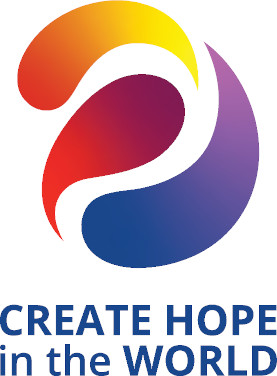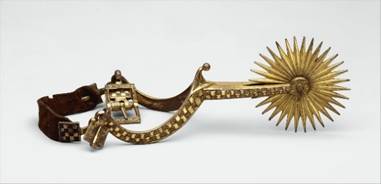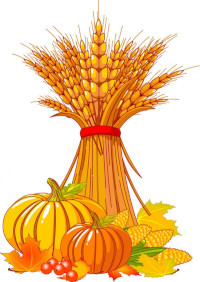|
Rotary International Theme 2023-2024

|
THE ROWEL

Rotary
Club of Durham
|
Rotary
International President:
Gordon McInally
Rotary District 5160 Governor:
Clair
Roberts
Durham Rotary President: Glenn
Pulliam
_____________
Editor:
Phil Price
Publisher: Jen
Liu
|
|

|
March 26, 2024
|
Harvest Festival 2024

Will be held on
Sep. 15, 2024
|
|
|
|
|
| 2024
Calendar for Durham Rotary |
M
a
r
c
h |
|
|
|
|
|
1 |
2 |
| 3 |
4 |
5
No
Meeting |
6 |
7 |
8 |
9 |
| 10 |
11 |
12
Meeting
Gold Mining Butte Creek Canyon
(Phil Price) |
13 |
14 |
15 |
16 |
| 17 |
18 |
19
No
Meeting |
20 |
21 |
22 |
23 |
| 24 |
25 |
26
Meeting
Robert Doombos, Founder and CEO of Weather Tools Inc,
(Daryl Polk) |
27 |
28 |
29 |
30 |
| 31 |
|
|
|
|
|
|
A
p
r
i
l
|
|
1 |
2
No
Meeting |
3 |
4 |
5 |
6 |
| 7 |
8
|
9
Joint Club meeting at Chico Elks
Lodge at 5:30 PM
|
10
|
11
|
12 |
13
|
14
|
15
|
16
No Meeting |
17
|
18
|
19
|
20 |
| 21 |
22 |
23
Meeting
TBA
(Steve Plume)
|
24 |
25 |
26 |
27 |
| 28 |
29 |
30
Club Social at Marigold Marketplace in Durham
(Diana Selland) |
|
|
|
|

|
The Meeting Opening
The
meeting
was called to order by Past President Eric Hoiland, at BCCC. Eric asked John Bohanon
to lead the pledge,
which he did. Jim
Patterson then
presented the invocation.
Larry Bradley
was asked to led us in a song.
He led us
in singing “Take Me Out To The Ball
Game.” |
|
FUTURE
MEETINGS: Meetings
will be at the location noted, at 6:00 pm.
|
| March 26th:
Daryl Polk, at BCCC
April 9th:
Joint Club meeting at Chico Elks Lodge at
5:30 pm.
April 23rd:
Steve Plume, at BCCC
April 30th:
Club Social at Marigold Marketplace in
Durham
May 14th:
Bruce Norlie
May 28th: Steve Heithecker
June 11th:
Mike Crump.
June 25th:
Eric Hoiland-Demotion.
|
|
President
Elect Peggi Koehler offered Rotary T-Shirts for
sale. Contact her to order
your
t-shirt. They will be great
to wear at
the Harvest Festival. The
cost to
members will probably be in the area of $22-$25.
The actual cost is somewhat more, but the
club will pick up the rest.
She
also announced that she will be attending the District
Conference on April 26-28 and the Spring Assembly North at Shasta
College in Redding on April; 6th.
Larry
Bradley announce that they have found another location for
Camp Royal, so it can now be held in June, not the end of August, after
school had started.
He
also indicated that they will be selecting the students
attending Camp Venture, shortly.
We
will also be contributing to the Durham Parade, which will be
held on May 11th.
Introduction
of
Visitors
Larry Bradley
introduced the
parents of our Student of the Month for March, Mike and Rose Wilson. Wade Wilson, our Student of
the Month had not
yet arrived.
He also introduced
Daryl
Polk’s program for the night, Rob Doornbos.
Recognitions
 Jessica Thorpe was recognized
for her birthday, but refused to disclose
her age. However, she
contributed $50. We sang
“Happy Birthday” to her.
Jessica Thorpe was recognized
for her birthday, but refused to disclose
her age. However, she
contributed $50. We sang
“Happy Birthday” to her.
Mike Wacker was recognized for his birthday and also contributed
$50. We sang “Happy
Birthday” to him.
Next Meetings

The next meeting will
be April
9th. It will
not be at the
BCCC. It will be at the
Chico Elks Lodge
beginning at 5:30 pm. It
will be a joint meeting
of the 4
local clubs, hosted by Chico Rotary.
Since it is on our regular meeting night it will be our meeting
for theweek. The Club will
pick up the cost of
the dinner for members. If
you bring a
guest, your cost for the guest will be $22.
Let President Glenn know if you are coming and if you are going
to bring a guest.
The following meeting will be on April 23rd.
Steve Plume will present the
program at the
BCCC.
Then on April 30th, we will have a club
social
at Marigold Marketplace in Durham.
It is
Kolocated at 2500
Durham-Dayton
Hwy #8, Durham, CA 95938
We will
hear
from Kelly, the owner, about her business model and what she's brought
to thecommunity. We will have beer & wine available for purchase,
and dinner will
be provided from a host of her local vendors.
An invitation and RSVP info will be coming out soon.
Students
of
the Month
Larry
Bradley introduce
Student of the Month for
March, Wade
Wilson. Wade spoke to us
about the many
things he has done, including being Student Body President this year,
his attendance at Camp Royal, his involvement in Interact and much more. Larry presented him with a
plague.


Tonight’s Meeting Program
Daryl
Polk introduced Rob
Doornbos, Founder and CEO of Weather Tools, Inc. Weather
Tools, Inc. prepares The
California Annual Precipitation (CAP) report, which was developed by Rob.
This is not a daily weather report, but
rather a prediction of the total precipitation expected for the year,
which is issued at the beginning of winter for farmers and water
managers. It is not a
prediction of when, in the winter,
the precipitation will fall, but the total expected for the year.
Until now, a reliable water year precipitation
forecast for
California has not existed. During the first week of November, CAP
forecasts the total precipitation for California’s water year (Oct
1-Sept 30) – almost a
full year in advance.
This statistical model provides two critical
pieces of
information:
Whether it will be an “above” or “below” normal
water year.
A definitive range of precipitation amounts, in
20% ranges
relative to normal: >40% below normal (BN), 20-40% BN, 0-20% BN,
0-20% above normal (AN), 20-40% AN, or >40% AN.
Once the data is analyzed and predictions are made
for the
water year, the forecast doesn’t change. Customers are not left chasing
a fluctuating prediction and can make informed, water-related decisions
months in
advance.
CAP forecasts have
successfully verified every
year – 7 years in a row.
No other California precipitation forecast has come close to doing the same.

For
all the
responsibilities a water manager has, the primary input is
precipitation. The CAP forecast helps water managers anticipate risk and
make operational
decisions. With an accurate water year precipitation forecast, state
reservoirs can be more effectively managed. Monthly precipitation
updates and reservoir
status can assist in positioning resources ahead of time to enable a
moreinformed level of water management, in both drought and flood.
Membership
Bring
guests who you think you can
interest in becoming a member. Your
dinner
and your guest’s dinner will be paid for by the Club.
Also, bring a guest to one of our occasional
social gatherings.
Go
to the following Rotary International web site
for information on membership development:
https://my.rotary.org/en/learning-reference/learn-topic/membership
. From
this website
there is access to membership development and other related information.
The
Rotary Foundation Donations
You
can make a
difference in this world by helping people in need. Your gift can do
some great things, from supplying filters that clean people’s drinking
water to empowering
local entrepreneurs to grow through business development training.
The
Rotary
Foundation will use your gift to fund the life-changing work of Rotary
members who provide sustainable solutions to their communities’ most
pressing needs.
But we need help from people like you who will take action and give the
gift of Rotary to make these projects possible.
When
every
Rotarian gives every year, no challenge is too great for us to make a
difference. The minimum gift to The Rotary Foundation is
$25.00. An
annual $100.00 gift is a sustaining member. Once your donations
accumulate to $1,000 you become a Paul Harris Fellow.
If
you
have any questions ask Steve Heithecker.
It
is possible to
learn more about The Rotary Foundation on the Rotary web site.
Your
gift can be
made online or by sending Jessica Thorpe a check made out to The Rotary
Foundation to Durham Rotary, P.O. Box 383, Durham,
California
95958.
Must Be Present to Win Drawing:
Steve
Plume
drew Steve Heithecker’s name.
Steve was not present to win.
Eric
then
closed the meeting.
________________________________________________________________
From District 5160
Spring
Assembly:
North – April 6, Redding
Field of Rotary Dreams 2023-24 District Conference
– April
26-28, Sacramento
RI
Convention
Social – May 26, Singapore
District
5160
Awards & Installation – June 13, Davis
World
Peace
Conference – January 24-26, 2025, Rohnert Park (Sonoma Wine Country)
_______________________________________________________________ri
From Rotary International
Rotary project supplying clean water
to
Zimbabwean villages brings wide-ranging benefits
By Etelka
Lehoczky
Nobody
takes
water for granted in Zimbabwe, least of all the residents of Musekiwa
and Mushaki. Located about 160 kilometers
(99 miles) from
the capital of Harare, the two villages have been drastically affected
by the country’s water shortage. Until recently, many residents walked
five kilometers
(three miles) or more to find water every day.
“They
were
getting some water from open wells, some from rivers,” says Trymore
Tafadzwa Kabanda, a councilor
for Mushaki.
That
changed
when two Rotary clubs thousands of miles apart decided to collaborate on
a grant-funded project. Members of the Rotary Club of Saint Helena,
California, USA, learned about the villages’ situation in 2020 from a
guest speaker whose wife had grown up in the area. They found out about
the
devastating effects climate change has had on rainfall in rural
Zimbabwe, where more than 90% of households depend on agriculture for
their main livelihood.
Zimbabwe’s rainfall patterns have become highly variable in the last two
decades. The rainy season used to last from October to March; now it
sometimes
starts as late as December.
“They
had
a horrendous water problem,” says John Muhlner,
a
past president of the Saint Helena club. “Women, for the most part,
werewalking miles every day to bring water back to their homes. Often
they would go and wouldn’t find water, or maybe the water they found
would be contaminated.”
The
Saint
Helena Rotarians contacted the Rotary Club of Harare CBD,
Harare,Zimbabwe, which conducted a community assessment. After that, the
clubs raised
funds and applied for a Rotary Foundation global grant. The US$82,000
projec tplan was to dig two wells, install solar-powered pumps and a
water piping
system, train residents to maintain the equipment, and conduct an
educationalcampaign about the importance of hygiene.
Although
the
project seemed straightforward, it took more than a year to complete.
The first barrier was a predictable one: bureaucracy.
“It
is
quite important that you approach the various government offices to get
the necessary approvals before you start a project,” says Antony
Matsika, a past
president of the Harare club. “We had to go through four levels of
approvals:the provincial development coordinator, the district
development coordinator,
the rural district council, and – lastly, maybe, but still important –
the chief of the area. If we didn’t go through those different
stakeholders, we
were not going to succeed in doing the project.”
Once
work
was underway, the clubs encountered a problem they didn’t anticipate:
Oneof the wells they dug didn’t strike water.

Workers dig a well in the village of
Mushaki, Murehwa District, Zimbabwe]
Courtesy
of Constancia Bosha
“In
Zimbabwe,
you can contract for drilling one of two ways. One is to tell the
contractor where to drill, and if nothing comes out of the hole, you’re
responsible for the cost of drilling somewhere else,” says Dan Balfe, a
member of the Rotary Club of Santa Rosa, California, USA, who also
worked on the
project. “We should have contracted for a wet hole, which is to say,
they would guarantee to drill a hole that had water. We learned a lesson
there. As a
result, we had to do another phase of fundraising.”
Ultimately,
the
villages did get their water. Now the Saint Helena and Harare clubs are
planning a second grant-funded project to help two more villages in the
region.
But there’s still a need for many more such initiatives. The World
Health Organization estimates that 1.4 million people die each year
because of
inadequate water, sanitation, and hygiene facilities. Access to clean
water affects everyone – often in surprising ways.
“Water
touches
on all of Rotary’s areas
of
focus,” says Mary
Beth
Growney Selene, chair of the Water,
Sanitation,
and Hygiene Rotary Action Group. “Children are not being pulled away
from
school to go fetch water in a local river. Parents don’t have to spend
time fetching water, so they can be more productive economically. People
aren’t as
susceptible to waterborne diseases. ‘It all starts with water,’ is what
wesay.”
That
was
certainly the case in Mushaki and Musekiwa.
“Now,
most of the villagers don’t have to go more than a few meters to fetch
water,”Kabanda says. “Also, diseases like cholera are prevented.”
Kabanda
and
the Rotary members believe the new wells shielded people in Mushaki
and Musekiwa from a recent outbreak of cholera,
which can be caused by a bacterium in brackish river water. A hospital
in the area said there hadn’t been any cases of cholera from the two
villages, Matsika
says.
“Our
conclusion
is that it is probably because of our project – because of the supply of
clean water.”
|
The
Rotary International web site is:
www.rotary.org
District
5160 is:
www.rotary5160.org
The
Durham Rotary Club site is:
www.durhamrotary.org
The Rowel Editor
may be contacted at:
pbprice1784@gmail.com
The deadline for
the Rowel 6:30 am on
Wednesdays.
The Editor's
photographs published in the Rowel are available, upon
request, in their original file size.
Those published were substantially reduced in file
size.
|





 Jessica Thorpe was recognized
for her birthday, but refused to disclose
her age.
Jessica Thorpe was recognized
for her birthday, but refused to disclose
her age.



